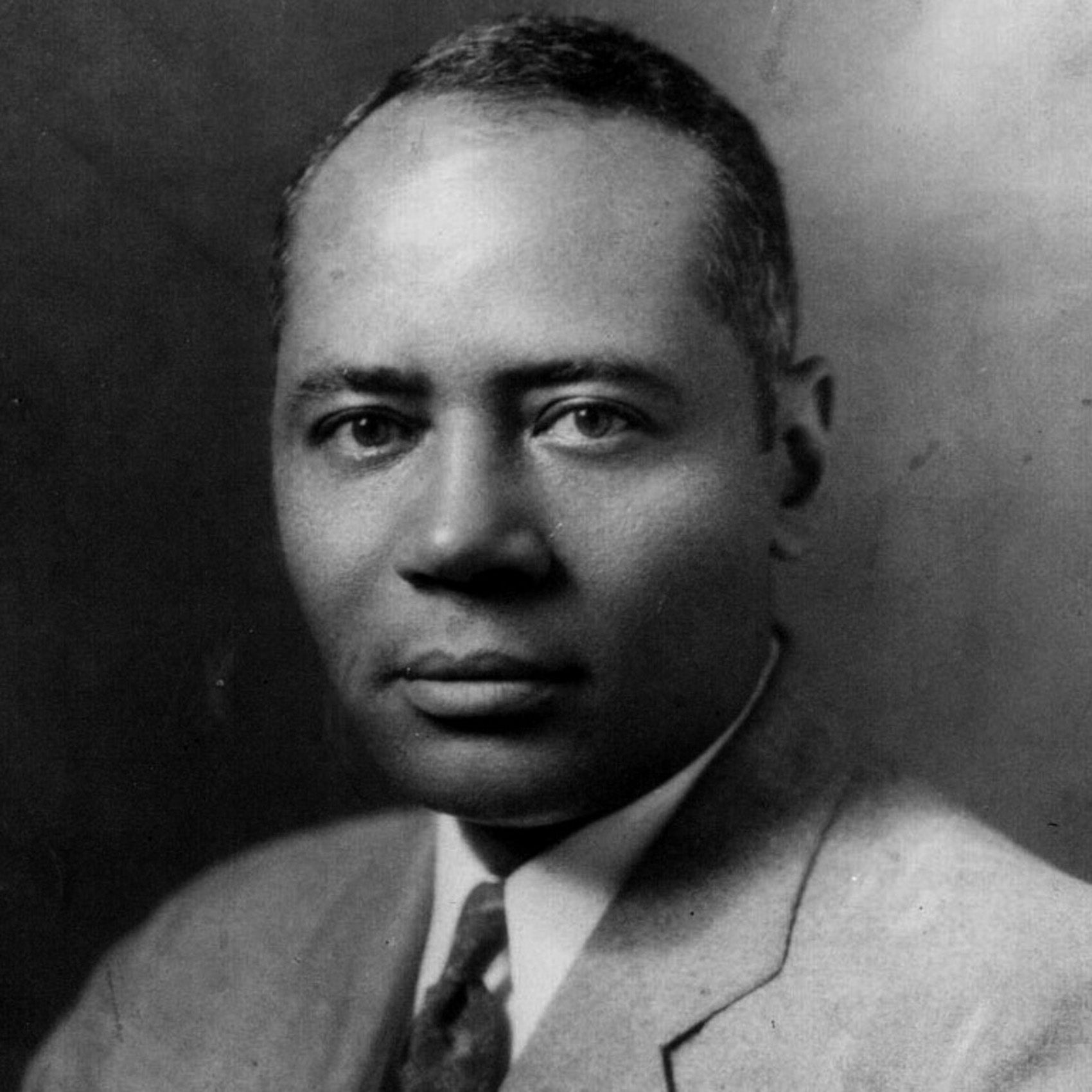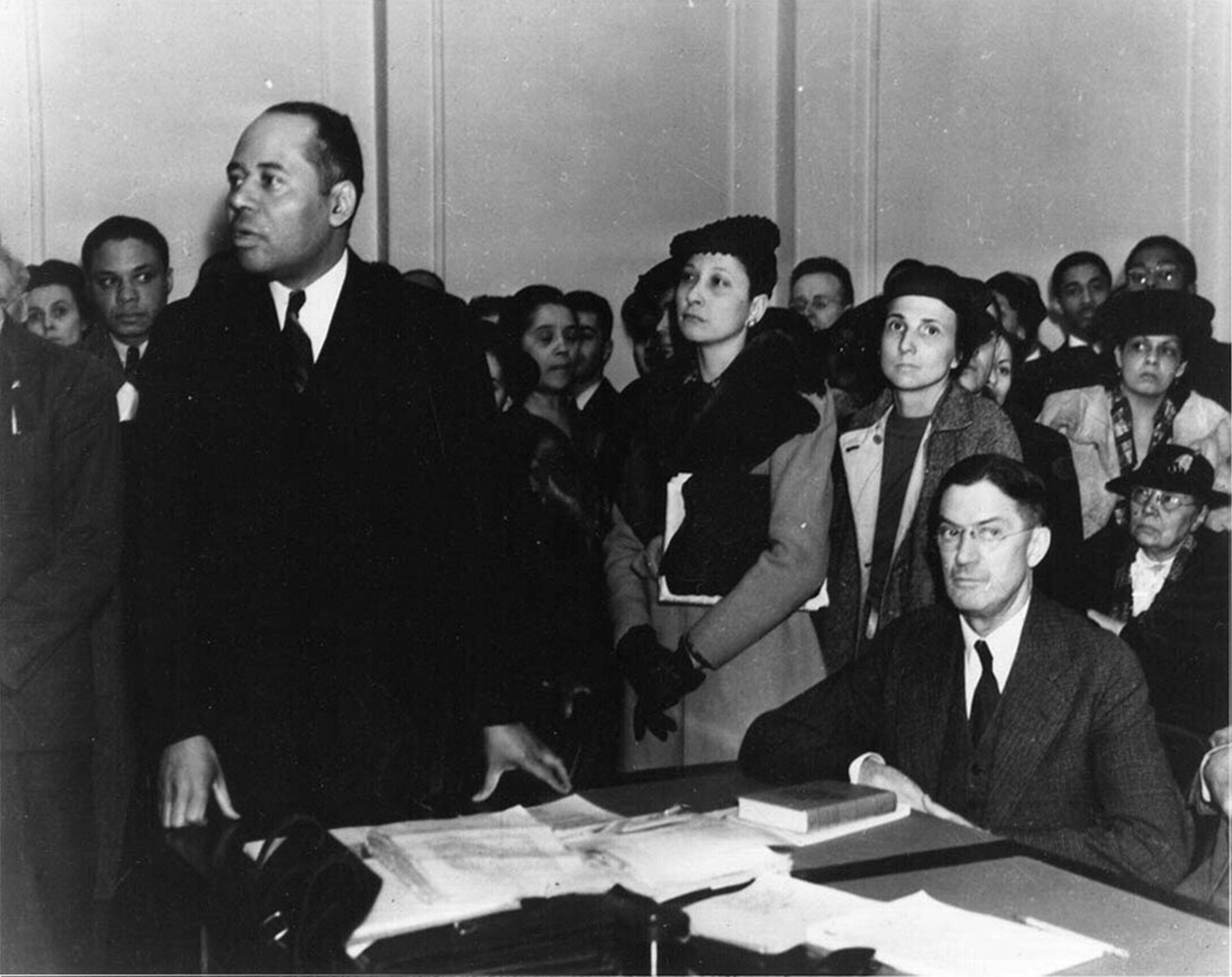
Charles Hamilton Houston ’1922 S.J.D. ’1923 was an inspiring figure in American legal history and a sometimes controversial one as well. Both sides of his legacy were examined in a lively lecture and Q&A discussion at Harvard Law School this week, to coincide with the 124th anniversary of his birth on September 3, 1895.
There was no disputing Houston’s status as a one of the key champions of American racial justice in the 20th century. In his opening talk, Professor Randall Kennedy outlined the obstacles Houston overcame as an African American lawyer in the early 20th century, and the accomplishments that ultimately led to the Brown v. Board of Education decision (which came four years after Houston’s death). Professor Kenneth Mack ’91 also celebrated Houston’s achievements, but pointed out decisions Houston made that reasonable minds might take issue with.
In his talk, Kennedy noted that as the first black editor of the Harvard Law Review, Houston didn’t always have an easy time at Harvard. Quoting a letter Houston wrote to his parents, Kennedy noted that he responded to obstacles by working that much harder. “The editors of the review didn’t want me on this Fall,” Houston wrote. “They know I am just as independent, and a little more so, than they.” This, Kennedy suggested, led to a recurring theme in Houston’s career, the belief that black litigators needed to offset racial prejudice by being more skilled than their white counterparts.
Houston put that view into action after Harvard at the Howard University School of Law, where three-quarters of the country’s black lawyers were then being trained. As vice dean and later dean, Houston was charged with helping the institution gain accreditation, and used strong methods to achieve it: He expelled underachieving students, fired weak faculty, and phased out Howard’s night school, even though his own father had earned his law degree there. “He did what he did and took the consequences,” Kennedy said. “He was seen as a newcomer who was attempting to Harvard-ize the Howard Law School.”
Houston could be an intimidating figure; Kennedy noted his “aristocratic austerity” and ever present black suit. And he never relaxed his exacting standards—insisting, for instance, on an all-black defense team (including a young Thurgood Marshall) when he defended accused African American murderer George Crawford in a racially tense section of Virginia. (Crawford was convicted, but Kennedy said that Houston’s team likely spared him the death penalty).
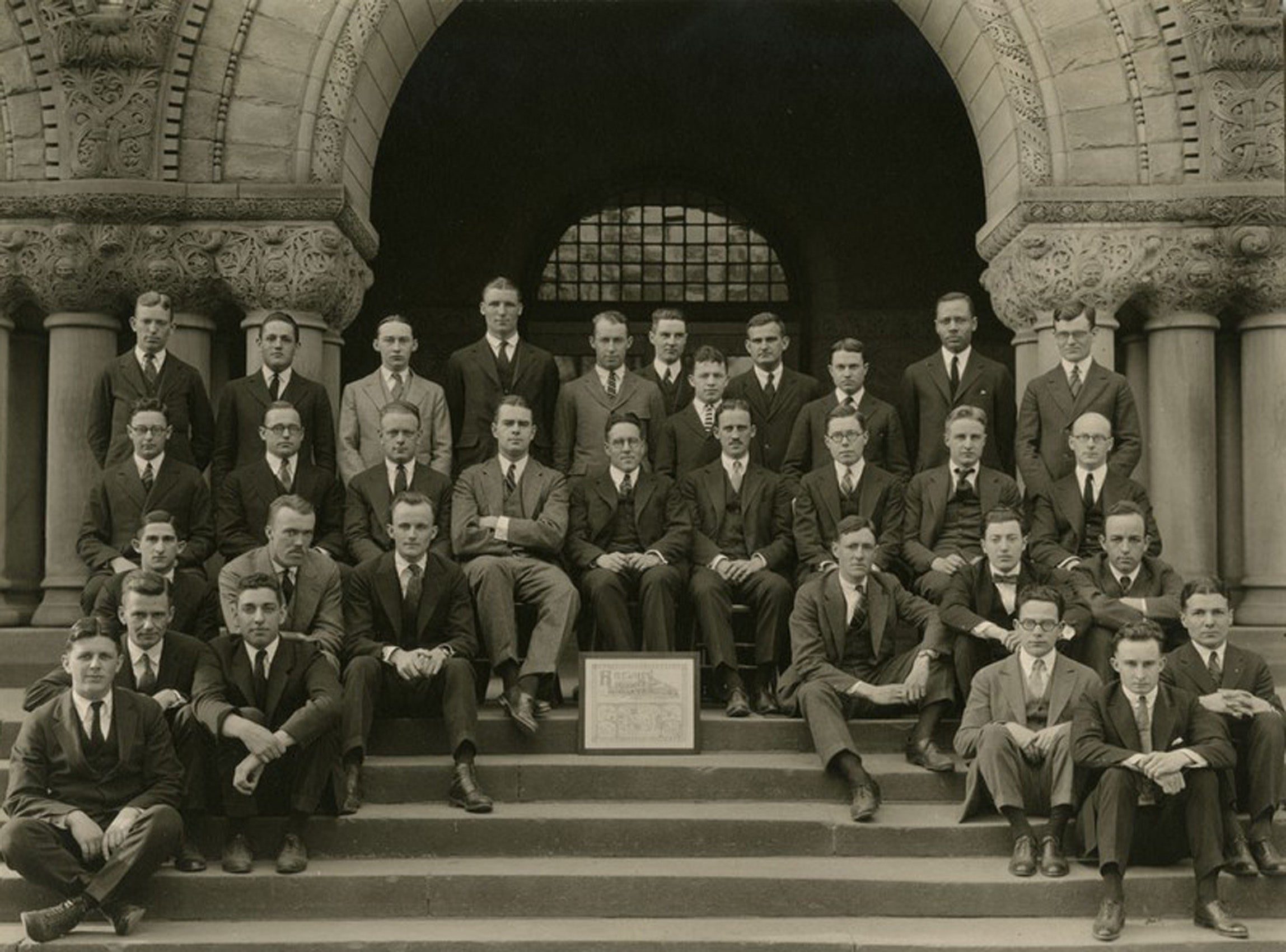
Houston later argued three racially significant cases in the federal Supreme Court, including Hurd v. Hodge (1948), which prohibited the enforcement of “restrictive covenants” that would prohibit ownership of property based on race. When Brown was decided—in 1954, four years after Houston’s death from a heart attack—the team included several of Houston’s Howard students, and evoked several of his principles. “He lived to see us close to the promised land of equality under the law,” Kennedy said.
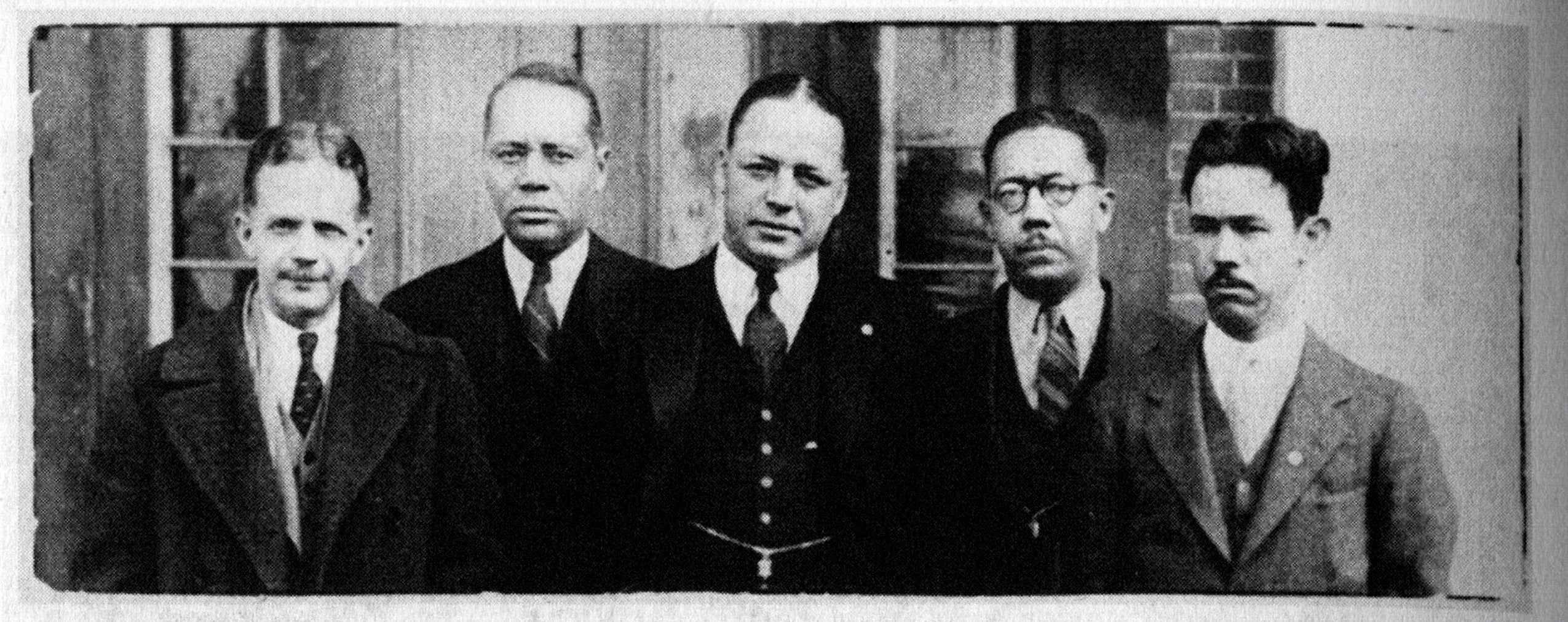
Professor Mack, who delivered a response to Kennedy’s talk, wrote about Houston in his 2012 book “Representing the Race: The Creation of the Civil Rights Lawyer.” Without downplaying Houston’s importance, Mack responded that some of his decisions were rightly controversial, including the closing of Howard’s night school. Since there were no scholarships available to black students, they needed to quit their day jobs or stay away. “A lot of black people couldn’t go to Howard Law School, precisely because of what he did,” he said.
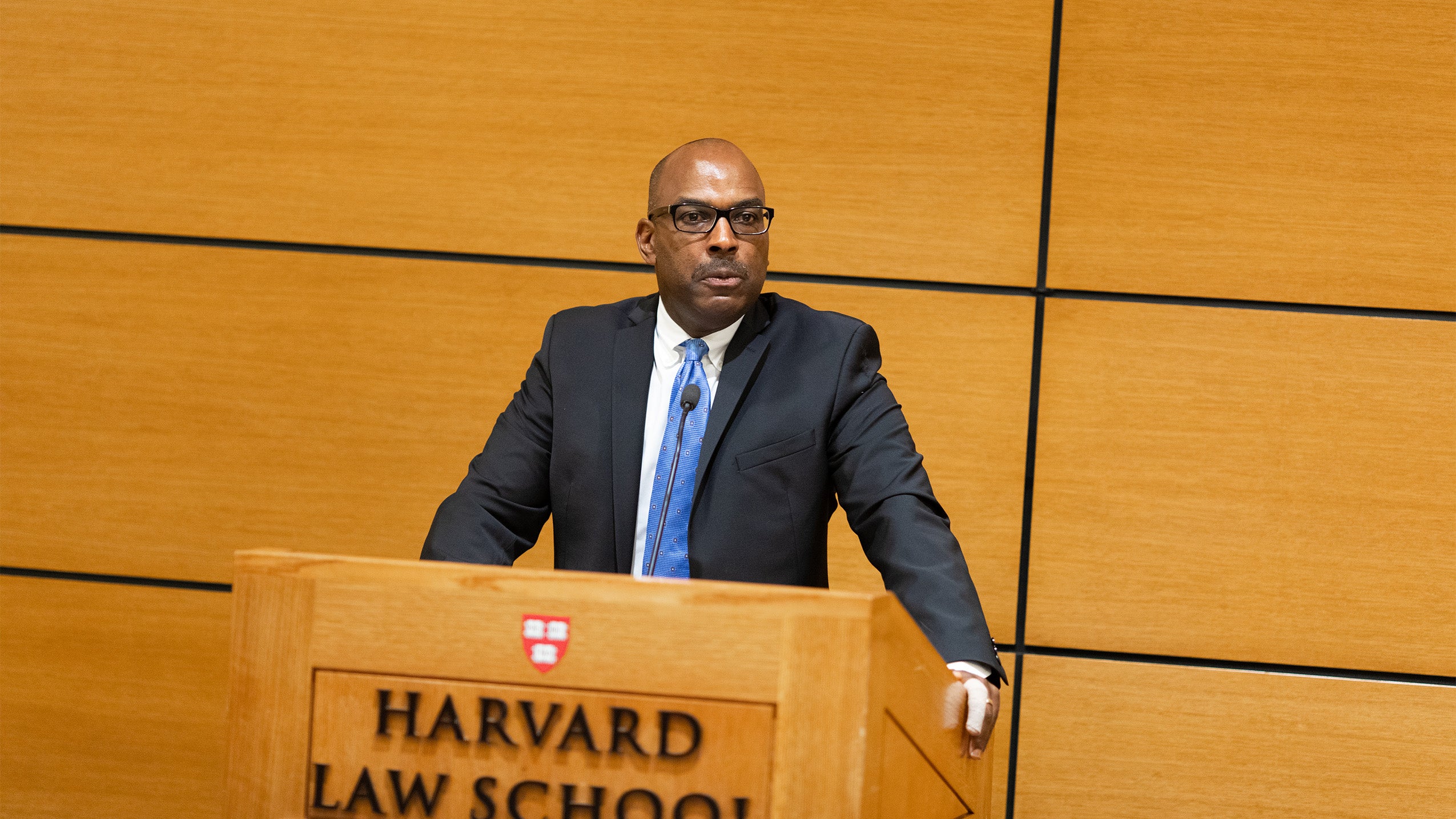
Mack also challenged Houston’s insistence that the NAACP work only with black lawyers, when that would mean rejecting Clarence Darrow and other prestigious white lawyers who were on the NAACP’s side. Likewise, he argued that Houston gave himself a tougher legal battle—and perhaps, put himself in physical danger—by bringing an all-black team to Leesburg, Virginia in 1933 for the Crawford case. “He thought it was important for black people to be better than white people, by the white peoples’ own standards. That was a very controversial position then, and it’s still one now.”
Mack also noted that being a black student at Harvard was a major challenge, for Houston as well as his contemporaries. “To be here was to be insulted every day, and to have your own existence called into question … And they wished to make the world better, every day of their lives.”
The Q&A session shed light on some of the complexities of Houston’s character. Asked if he had elitist tendencies, Kennedy responded that he absolutely did. “He was a black Brahmin and thoroughly elitist. Yet he was also more left wing. He represented Communists, to the dismay of some of his colleagues.” Dr. Cornel West, who attended the lecture, commented that Houston’s elitism was more a matter of striving for excellence.
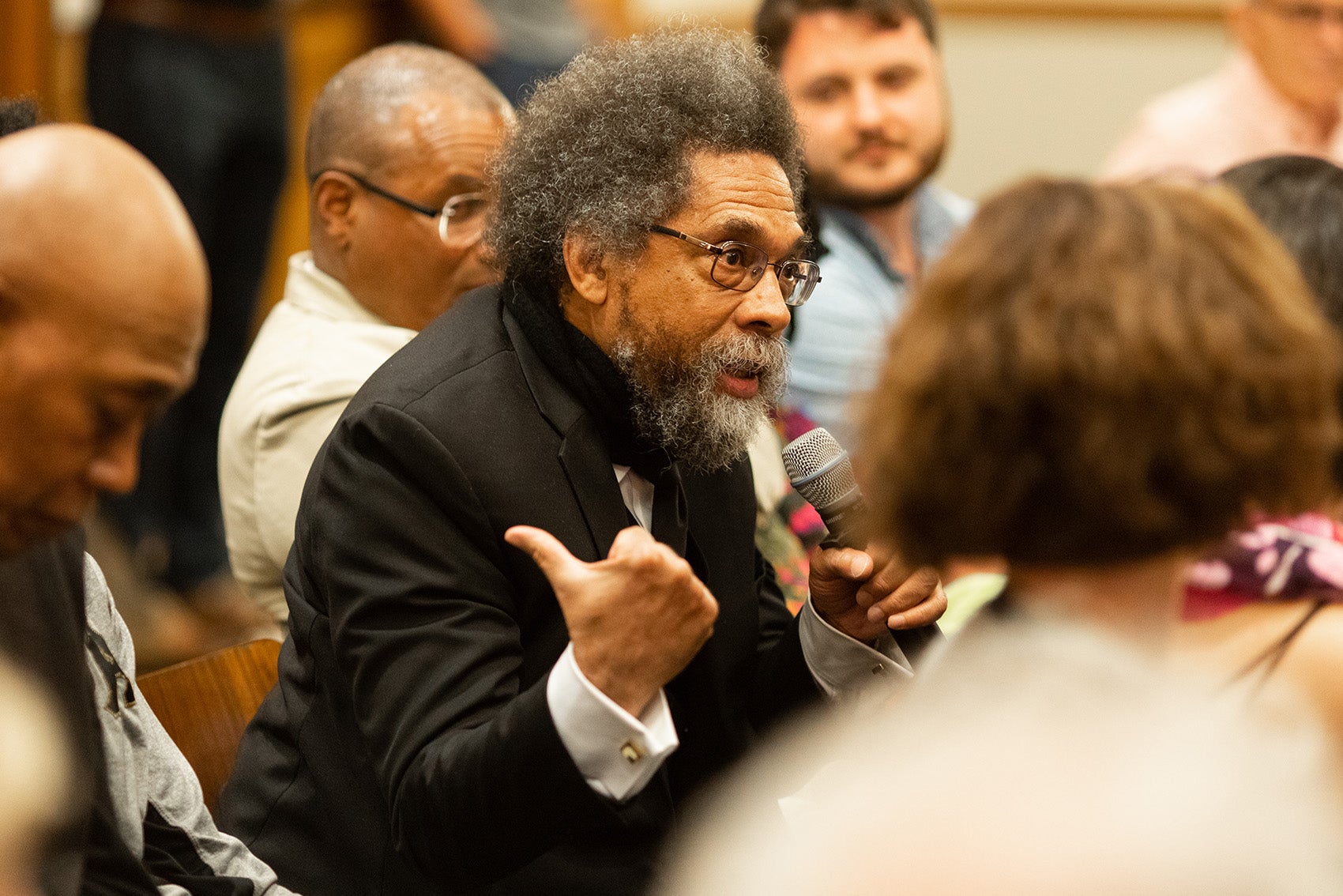
“Elitism is a promiscuous term, it can lie with a lot of ideologies and perspectives,” West said. “There are egalitarian versions of elitism that say, for these particular jobs we want the highest quality lawyers at this particular moment on the battlefield. Houston was a version of that … Every form of elitism doesn’t reinforce a class, race, imperial hierarchy. Not at all: Toni Morrison was a better novelist than nearly everyone from her day. That doesn’t make her an elitist, just better.”
Another audience member asked how Houston might approach the Supreme Court today, given that the current Court is not necessarily favorable to organized labor, and might not have even passed Brown. “People with my ideological bent are very critical of our current Supreme Court, so much so that we sometimes feel dispirited,” Kennedy responded. “But one lesson I get from Houston is: Take a look at what he was up against.”
